Metal
Stainless Steel
 Stainless steel is an alloy of iron and chromium, and doesn’t rust as easily as iron does. It can withstand exposure to air and moisture without discoloration, hence the term “stainless.” It’s a low-maintenance metal used in everything from surgical instruments, kitchens, appliances, and industrial surfaces. Mann Metals Corp. buys stainless steel from both residential and commercial sellers.
Stainless steel is an alloy of iron and chromium, and doesn’t rust as easily as iron does. It can withstand exposure to air and moisture without discoloration, hence the term “stainless.” It’s a low-maintenance metal used in everything from surgical instruments, kitchens, appliances, and industrial surfaces. Mann Metals Corp. buys stainless steel from both residential and commercial sellers.
Residential customers may find they have scrap stainless steel in the form of appliances, cookware, flatware, backsplashes, countertops, etc. Some design elements such as switch plates and lamps are also made from stainless steel.
Commercial customers include all kinds of businesses, including restaurants, metal shops, factories, construction and contractors. Remodeling a commercial kitchen? There can be quite a bit of recyclable stainless steel in your demo. Find yourself with stainless steel scrap from installing custom stainless backsplashes, countertops, or design elements? Have scrap from fabricating custom stainless steel items? Have scrap sheet, plate castings, turnings,? We accept alloys 304, 309, 316, 330, and 409. Mann Metals Corp. is happy to buy it! We provide top prices and prompt payment every time.
If your company produces large amounts of scrap stainless steel, please contact us about arranging pick up. For smaller amounts of the metal, please bring it into our facility at your convenience.
Like our blog? Want to see a particular topic? Tell us about it the next time you bring in your scrap metals!
Nickel
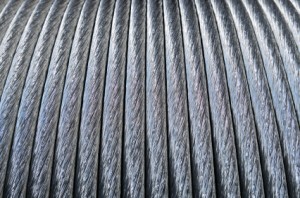 Nickel is a soft, white, shiny elemental metal that bonds so easily that it is only used as part of an alloy. It may be the most common alloying metal, often used in materials called “superalloys” or “high performance alloys.” It is also commonly used as corrosion prevention when “plating” or coating other metals. Thus the term “nickel-plated” referring to an object with a shiny white metallic surface.
Nickel is a soft, white, shiny elemental metal that bonds so easily that it is only used as part of an alloy. It may be the most common alloying metal, often used in materials called “superalloys” or “high performance alloys.” It is also commonly used as corrosion prevention when “plating” or coating other metals. Thus the term “nickel-plated” referring to an object with a shiny white metallic surface.
Despite being alloys with many metals in them, the nickel alloys we purchase as scrap metal can be melted down and re-used as new nickel alloy fittings. This can be a great selling-point for eco-conscious or “green”consumers.
Mann Metals Corp buys several types of nickel alloy. If you’re unsure of what you have, or want to know more about what we buy, please contact us.
- Hastelloy is a trademarked corrosion resistant alloy used in high-temperature, high-stress functions such as distillation or chemical reaction fittings.
- Haynes 188 is another trademarked “superalloy” with nickel, chromium, tungsten, and colbalt. It is used for jet engine combustion chambers and other high-stress, high-temperature applications.
- Inco 600, 625, 718 are all trademarked nickel alloys with chromium added. They are used in high-temperature applications.
If our blog articles have been useful to you, please let us know when you bring in your scrap metal. Thanks!
Brass
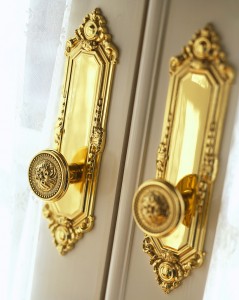 Brass is a metal alloy composed of copper and zinc. Because it’s made of two very soft metals found near the earth’s surface, it was one of the earliest alloys that humans began to make, along with bronze. Archaeologists believe that ancient Romans were the first to make and use brass around 3,000 BC.
Brass is a metal alloy composed of copper and zinc. Because it’s made of two very soft metals found near the earth’s surface, it was one of the earliest alloys that humans began to make, along with bronze. Archaeologists believe that ancient Romans were the first to make and use brass around 3,000 BC.
Brass is a soft, easily molded, acoustically interesting, and beautifully shiny yellow metal. With all these strengths, brass has many uses including musical instruments, decorative fixtures, keys, sparkless fittings near flammable substances, and piping.
Mann Metals Corp. purchases several types of brass scrap for recycling. The brass is melted down and re-worked to create new brass objects. Please contact us if you aren’t sure which type of brass you have.
We purchase at top prices, with prompt payment!
- Yellow Brass: This is an American term for brass that has 33% zinc.
- Red Brass: Also known as copper alloy C23000, which is composed of 14–16% zinc, 0.05% iron and lead, and the rest of the allow is copper.
- Bronze: A common name for gunmetal, this is a copper/tin/zinc alloy with 85% copper, 5% tin, 5% lead and 5% zinc.
- Ampco Bronze: This is a brand name for AMPCO Metal SA’s products which are specialty copper alloys used for corrosion resistance, sparkless fittings, molds, welding, and other uses.
- Auto Radiators: Most auto radiators contain brass alloys, and we do purchase scrap auto radiators.
Like our blog? Want to see a particular topic? Tell us about it the next time you bring in your scrap metals!
Electric Motors
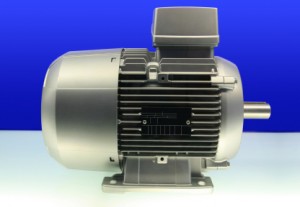 Electric motors used in various kinds of machines have been around for almost 175 years. They’re not always 100% “green” (that depends on where the power used to charge the batteries), but are generally much more environmentally friendly than fossil fuel powered engines. There are two main types of electric motors: ones that use alternating current, the kind that comes out of most household outlets, and ones that use direct current, which comes from batteries.
Electric motors used in various kinds of machines have been around for almost 175 years. They’re not always 100% “green” (that depends on where the power used to charge the batteries), but are generally much more environmentally friendly than fossil fuel powered engines. There are two main types of electric motors: ones that use alternating current, the kind that comes out of most household outlets, and ones that use direct current, which comes from batteries.
The first practical application of the electric motor, following the work of British scientist William Sturgeon, was created and patented by Emily and Thomas Davenport (U.S.) in 1837 in the form of a direct current motor that powered machine tools and a printing press.
Just about everywhere you look you’ll find electric motors being used. Depending on their type (rotary, servo, linear, etc.) they run fans, turbines, drills, the wheels on electric cars, machine tools, and even electrically powered spacecraft propulsion systems. One popular use of electric motors is for boating. There’s little doubt boaters and anglers can get closer to nature, without polluting it, and do so much more quietly, using an electric boat motor.
The major pros of electric motors are that they’re quieter, have fewer moving parts, don’t directly use fossil fuels, cost less initially, and normally have a much longer life than their fuel counterparts.
If you need to dispose of an old electric motor, recycle it at Mann Metals Corp. Not only is it better for the environment, but we’ll pay you for the metal.
Do you like our blog and find value in it? Please let us know.
Carbide and Hard Facing Technology
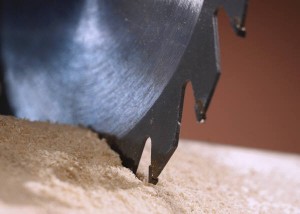 Through a process of heating (but not melting) various heavy metals called “sintering”, carbide or as it’s alternately called “carbon carbide” or “tungsten carbide” are formed. Tools and dies formed of tungsten carbide are essential when the task at hand involves cutting or working with other very hard substances, such as other metals or rock substances.
Through a process of heating (but not melting) various heavy metals called “sintering”, carbide or as it’s alternately called “carbon carbide” or “tungsten carbide” are formed. Tools and dies formed of tungsten carbide are essential when the task at hand involves cutting or working with other very hard substances, such as other metals or rock substances.
If you work with tungsten carbide tools, you’ll know some of the big names like Kutrite, who manufacture composite rods used in drill bits and many other applications.
The advantages of using carbide are many. The material is made of the highest steel cutting quality, and can often be used—such as for a drill bit—at a higher speed or for longer periods of time. Many machines, especially those used in precision cutting, use carbide parts or inserts. A relatively new process developed by Conforma Clad Inc., specifically known as Conforma Clad hard facing, involves spraying a mixture of tungsten carbide that’s been embedded in a hard nickel-chrome matrix onto existing machine parts. This process greatly extends the life of the part. Tungsten carbide is often brazened onto an existing steel tool or part to form the sharp end of the tool.
Mann Metals Corp buys and recycles carbides. Please contact us to find out more.
Please let us know if you like our blog or if it’s been helpful to you!
Copper Metal History & Recycling
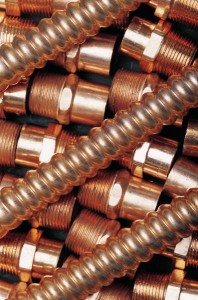 Copper was the very first metal to be mined and worked, as it is found near the earth’s surface, and is a soft metal that can be worked with simple tools. As early as 9,000 BC it was used in weapons, tools, and as ornaments in the Middle East. Mined as malachite, and smelted in kilns used for pottery, it was easier to find and work than was gold.
Copper was the very first metal to be mined and worked, as it is found near the earth’s surface, and is a soft metal that can be worked with simple tools. As early as 9,000 BC it was used in weapons, tools, and as ornaments in the Middle East. Mined as malachite, and smelted in kilns used for pottery, it was easier to find and work than was gold.
The price of copper has risen over the past few years, making it far more valuable than just a decade ago. And when the price of virgin copper rises, so does Mann Metal’s price for scrap copper. Please call or stop by for our current prices.
Mann Metals buys copper found in insulated wiring, small motors, plumbing, and in heating and cooling systems. Contact us to find out if the scrap copper you’d like to get rid of can earn you cash, too.
Like our blog? Want to see a particular topic? Tell us about it the next time you bring in your scrap metals!


